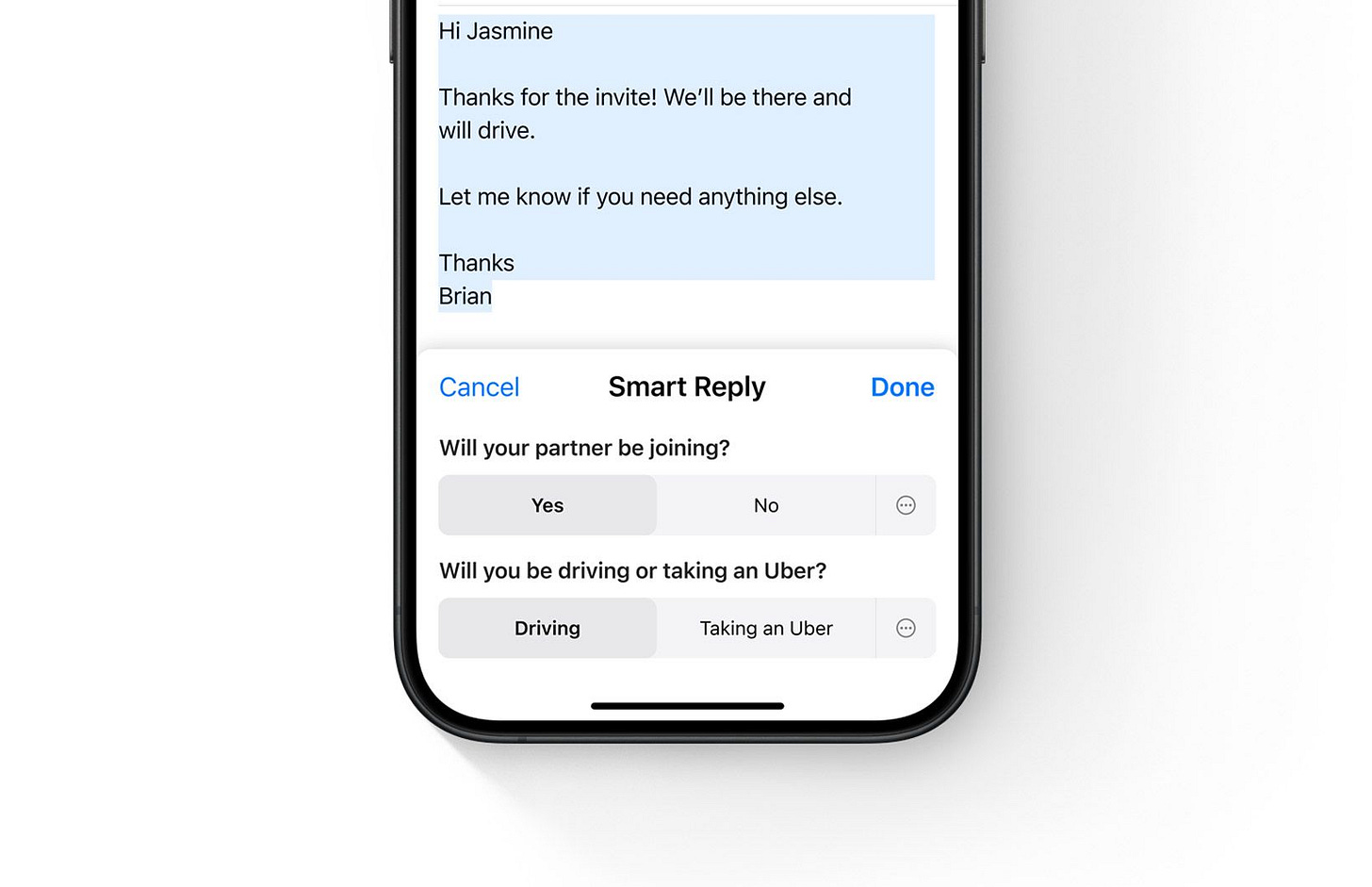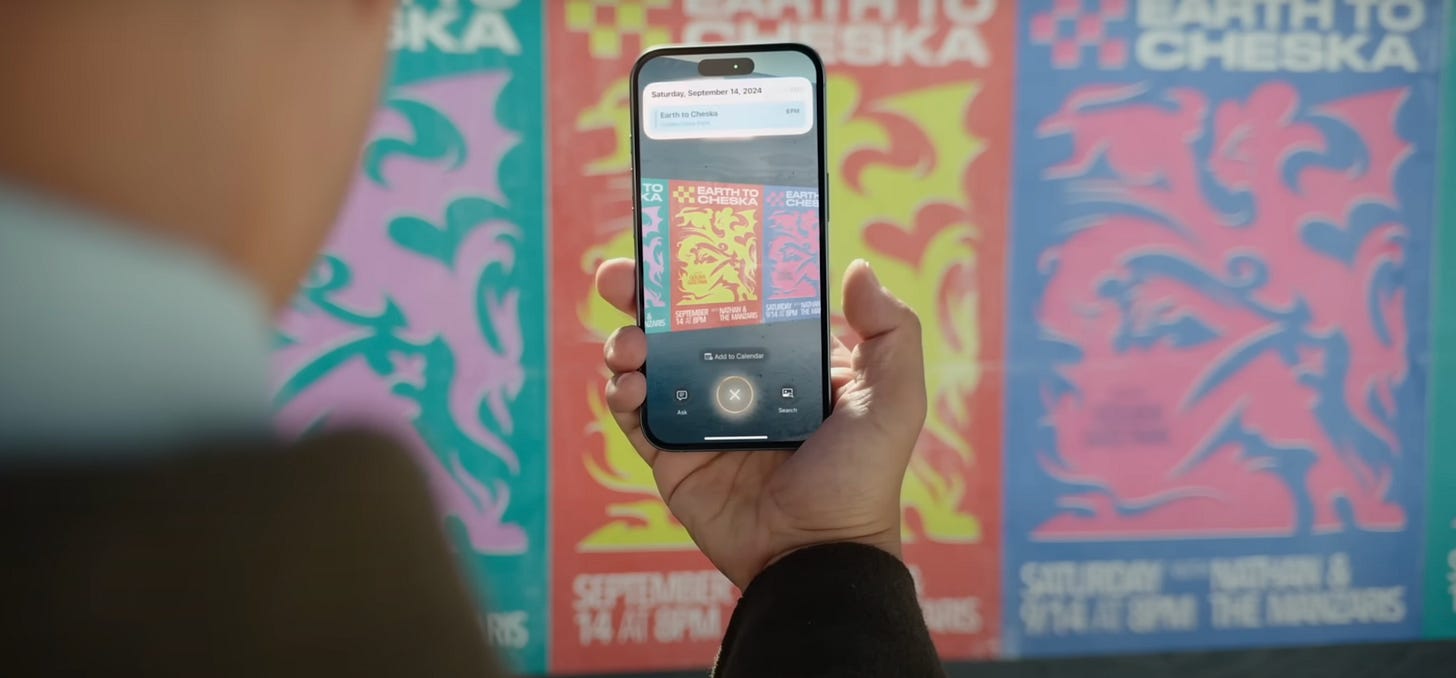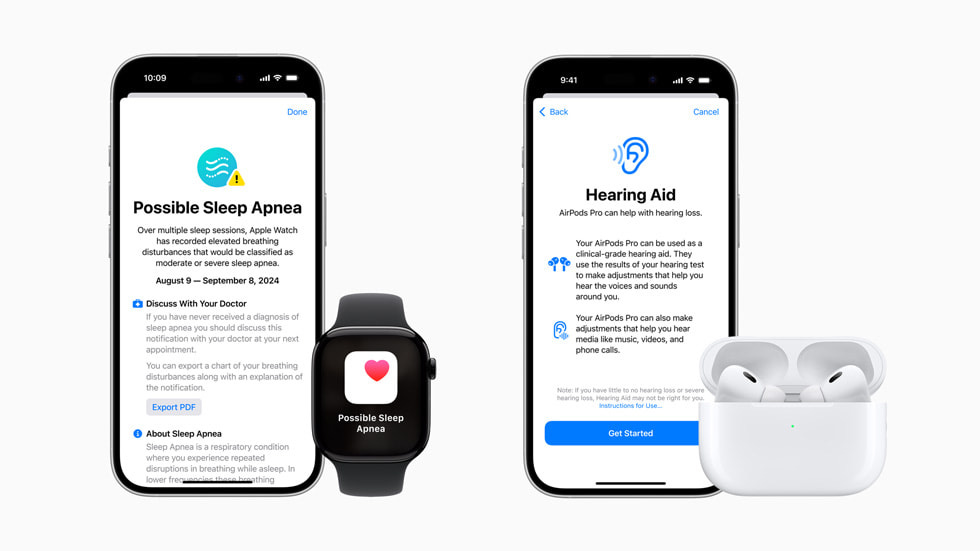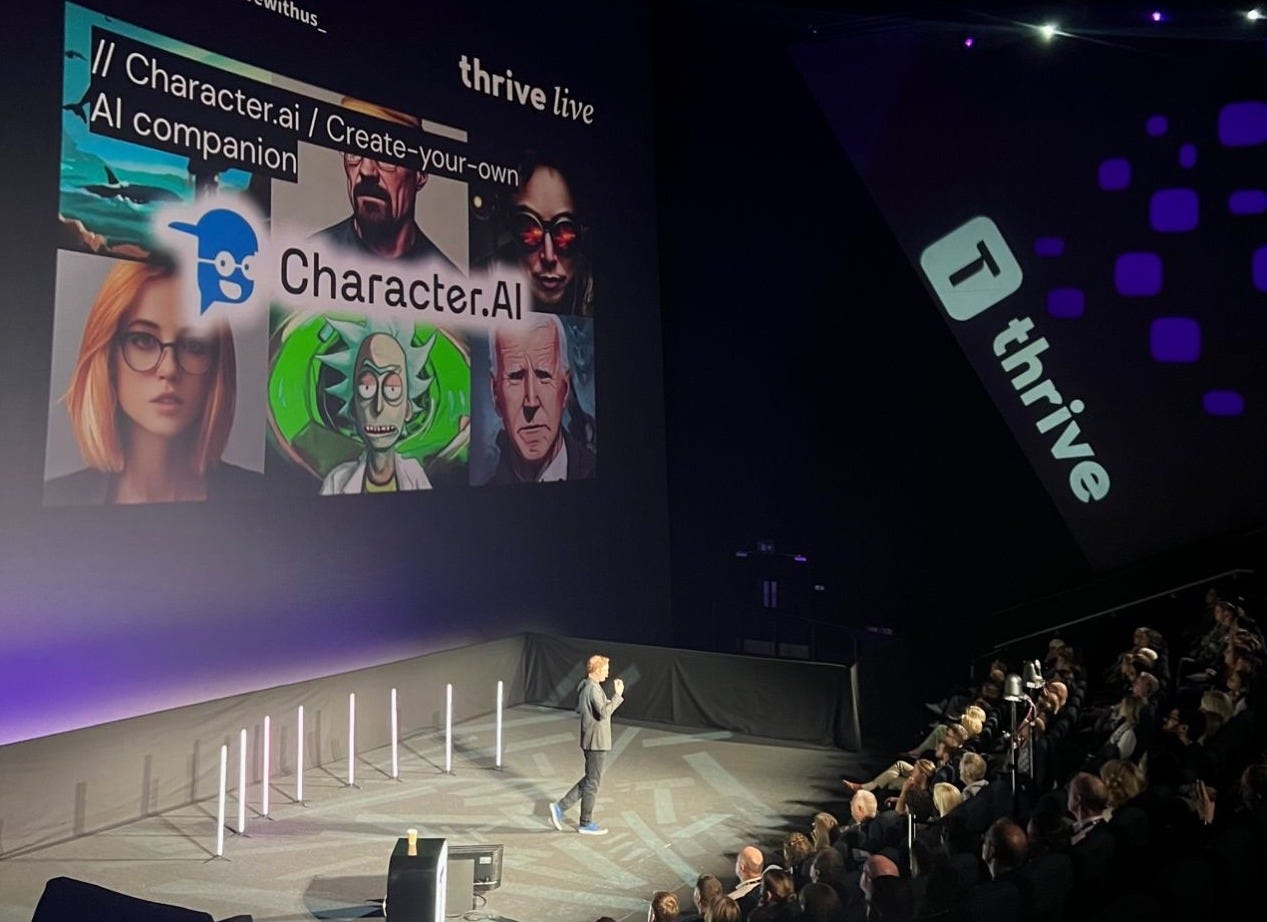This week, I’m diving deep into Apple’s latest event. But you won’t find much on its new tech specs, or indeed any thoughts on the pros and cons of its latest product releases.
That’s not why you’re here.
You’re here – I hope! – because you recognise that the best way to anticipate the future normal is to understand how today’s innovations will shape tomorrow’s expectations.
Put another way: what new customer behaviours and expectations will be created as Apple rolls out these new products and features to hundreds of millions of people?And most importantly: what do they mean for you?
Ready? Let’s dive into the least-Apple focused Apple newsletter you’ll read this week, covering:
Visual Intelligence - an ‘obvious’ trend, more than a decade in the making.
Follow the money: tech’s midlife opportunity with aging populations.
A note from our sponsor (me!): As we approach y/e planning season, many of you will be looking ahead to 2025.
🚨 I’d love to help.🚨 The two main things I can bring to your next event:
VisuAIse Futures: a new interactive, ‘multiplayer’ AI-powered creative experience. Watch the 2-min highlight video.
Your Future Normal: a non-obvious trend keynote.
Read more about these at the bottom of this email, if you’re interested.
The 2024 event ‘season’ is filling up – over the coming months I’ll be doing sessions in Hamburg, Berlin, New York, Las Vegas, Rome, Greece, and Riyadh, as well as staying closer to home in London, Bournemouth and Berkshire :)
If you’d like to discuss bringing me to your next event, please do mail Renee Strom on renee@ideapress-speakers.com.
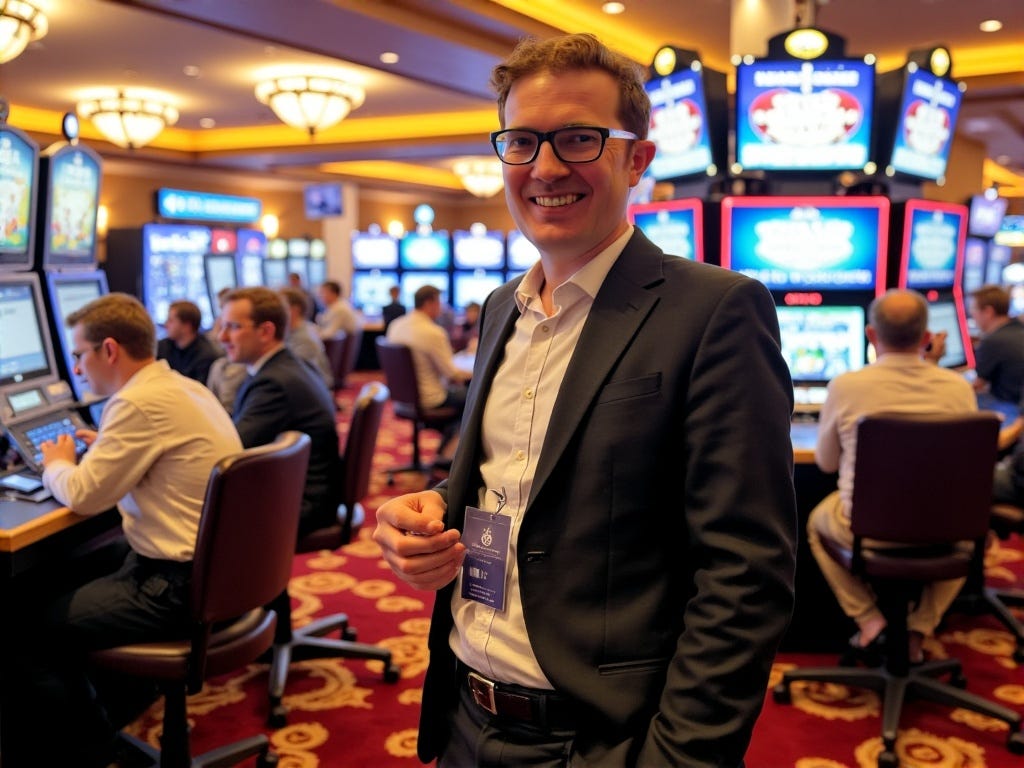
1. There are two big AI strategies. Which one will you pick?
Sam Altman has spoken about AI in terms of its ability to tackle the hierarchy of tasks – from 5-second to 5-minute to 5-hour to 5-day tasks.
Apple’s positioning of its Apple Intelligence makes clear where on this hierarchy it is aiming (my emphasis):
“[Use] Apple Intelligence to understand and create language and images, take action across apps, and draw from personal context to simplify and accelerate everyday tasks — all while protecting users’ privacy and security”
Zoom out a little, and there is clear divide that's opening up when it comes to AI:
1️⃣ Proactively augmenting and accelerating humans’ ability to do shorter time horizon tasks – think summarising documents, drafting emails, managing your calendar, etc.
vs.
2️⃣ Radically transforming and automating 'bigger' activities and jobs – like driving, housework, cooking and indeed entire jobs.
Apple Intelligence is very much in the first camp. Along with Microsoft’s Copilot, Abridge’s medical assistant, and Descript’s brilliantly-named Underlord. Even Salesforce’s AI agents target specific sales admin tasks, rather than fully replacing human salespeople.
Compare this to companies such as humanoid robotics manufacturer Figure, which is very much in the second camp, saying: “Robots that can think, learn, reason, and interact with their environments will eventually be capable of performing tasks better than humans…over time, humans could leave the loop altogether.”
This makes some sense. Incremental change allows incumbents to deliver value faster to their existing customers.
But also starting with ‘smaller’ goals can also help manage people’s expectations. Humane launched its AI pin promising to free us from our phones. It isn’t going well.
Compare this with Limitless, another AI wearable startup. It took a very different tack – positioning its Pendant as a memory aid, rather than claiming it will completely replace your smartphone. And it’s priced accordingly. As I wrote previously, people will be “a lot more forgiving towards a device that costs $99 than one costing seven times that.” (Humane’s Pin cost $699 and $24/month).
However change comes gradually, then suddenly.
If you're an executive you need to keep both lanes in mind:
1️⃣ How can you use AI to help people get more done tomorrow?
2️⃣ But are you also mindful of how AI might trigger a radical re-imagination of your entire industry & business model?
I’m curious. Which do you think will have the greater impact?
Will it be billions of incremental improvements to people’s productivity and creativity? Or the bigger, ‘sexier’ promises (AGI! Robot butlers! Flying taxis!)
2. Visual Intelligence - an ‘obvious’ trend, more than a decade in the making
The standout new iPhone 16 feature is Visual Intelligence. This will enable you to point your camera at something, and learn about it, letting you “take a picture of a restaurant to get info about its hours. Point your camera at a flyer, and “details like title, date, and location are automatically recorded.”
Two macro thoughts – less about this specific feature, and more about tech trends in general:
1️⃣ Trends are usually obvious. Indeed you are far more likely to be too early rather than too late.
Many of you might have read that last paragraph and thought to yourself, “that sounds like Google Lens” – you’d be right. If you’ve been in the game a long time, you might even remember its similarity to Google Lens’ precursor — Google Goggles.
I remember Google Goggles well, as it was one of the seminal examples that inspired a Trend Briefing I wrote back wayyyyyyy back in 2012 on POINT-KNOW-BUY:

I don’t share this to flaunt my brilliance. Indeed, quite the opposite. I share it to highlight my (then youthful!) naivety. Predicting that people would use their cameras as an easier, quicker and more intuitive way to learn about the world around them is, quite frankly, obvious.
Understanding when this new behaviour will become normal is far harder. And 10x more valuable if you’re running a business. Which leads to the second insight…
2️⃣ Experience is everything. New behaviours will never become mainstream if the experience isn’t brilliant (or at the very least reliable).
The difference between ‘just about’ and ‘just do it’ is tiny, but seismic. Early adopters might wade through complexity, or tolerate a substandard experience. But most people won’t.
Indeed, I wrote last week about how the only thing more impressive than the exponential growth in rides in Waymo’s self-driving taxis was how people’s attitudes shifted after the experience:
“Once people ride in self-driving vehicles, their trust skyrockets – “respondents in Phoenix and San Francisco who have been exposed to self-driving overindex the average American’s trust by 30 points, 67 to 37.”
My learning over the last 12 years? Look at how people feel after experiencing a something new. Do they rave about it? Does it change their expectations about what is possible?
If so, then you’re looking at something that’s ready to become part of the future normal. Advances in AI have pushed visual search, like self-driving cars and drone delivery, to this tipping point.
3. Follow the money: tech’s midlife opportunity with aging populations
There’s some truth in the narrative that the tech industry has moved from plucky disruptor to bloated incumbent. But Apple’s event showed that the brand isn’t entering a midlife crisis – desperately trying to cling onto its fading youth.
Instead it has recognised that its customers have aged, too. As tech analyst Rani Molla noted:
“Executives mentioned ‘sleep apnea’ a dozen times. The AirPod demo discussed ‘hearing loss’ way more than sound or audio quality, as they showed off noise reduction features as well as a clinically validated hearing test. Indeed, the AirPods Pro 2 will now double as hearing aids.”
The Apple ecosystem represents nearly 1.5 billion users. Hundreds of millions of them are aging, just as the brand itself approaches 50 years old.
Earlier this year, I explored a few ways that tech would transform the experience of aging. Read the full piece below, while asking yourself: how are we catering to this epic opportunity?
The Future Normal: Aging Gracefully
Spotting trends is easy. Take the aging population. We know it’s coming. Indeed, it’s been in so many trend reports, it’s getting old itself. 👊🏼 🎤💥
Can I inspire your team to seize the future?
This year I’ve delivered 20+ sessions, both live and virtually – from Brazil to Saudi Arabia, Slovenia to Shoreditch.
As well as my regular trend & innovation keynotes, I’m hugely excited about the reactions to my newest offering – VisuAIse Futures.
It’s an interactive, ‘multiplayer’ creative experience that will leave your audience thinking differently about AI:
“It was so refreshing to hear how AI can be used to power human imagination, rather than replace it. And then it was even better to actually experience it”
“Fantastic session! Hugely insightful and fun, too!”
“Brilliant. The feeling in the room was positively intense whilst the images were coming through!
Feel the optimistic vibes it will bring to your event in the 2-minute video below.
If you’d like to discuss bringing me to your next meeting or event then please do reach out directly to Renee Strom or check out my speaking site.
Thanks for reading,




